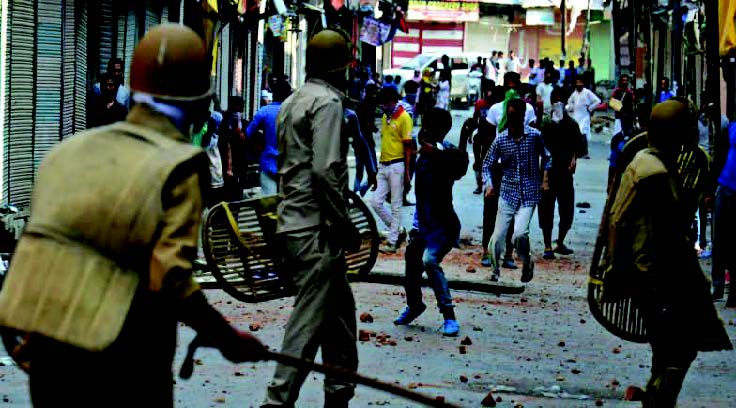It was left to senior JD(U) leader Sharad Yadav to observe that it was a “frightening situation” that a curfew had to be imposed on Eid in Kashmir. Yadav speaks the language of a politician, whereas it seems a policeman is calling the policy shots in New Delhi. There is the endless cycle of protest, violence, and the inevitable response from the security forces. New Delhi appears to have settled for a policy of tiring out the street protesters; it does not want to give the impression of being less than a tough, no-nonsense executioner of law and order. The official stance is reported to be calculated on a premise that inspiration and instigation for the street protests are emanating from across the border, and that only a very miniscule minority is out there protesting on the streets while the overwhelming majority of Kashmiris wants nothing more than a semblance of peace and normalcy.
Each one of these calculations may be valid. Still the curfew-on-Eid was an overdone calculation. It has been noted that it was the first time in more than one hundred years that no prayers could be offered in Srinagar’s Jama Masjid. A community was made to feel that it was not allowed to observe its religious freedom. An unhappy feeling — anytime, anywhere. It needs to be pointed out that there was violence despite the curfew in various parts of the Kashmir Valley.
This curfew-on-Eid tapestry was in sharp contrast to the earlier inspired leaks about the possibility of a Vajpayee-era like Ramadan “unilateral cease-fire.” While it would be naïve to discount Pakistan’s unabated interference in the Valley, it would be equally unwise to rely on the policeman to help seize the initiative away from the street protester. Pakistan’s unhelpfulness is a given, a constant and perhaps an unbreakable factor; but precisely because of this familiar meddlesomeness, New Delhi needs to let the politician do his trick and the diplomat practice his craft.
